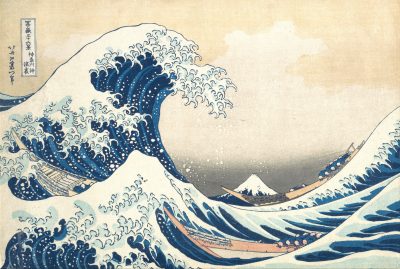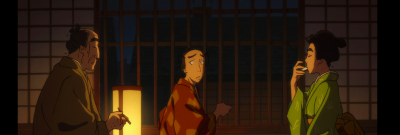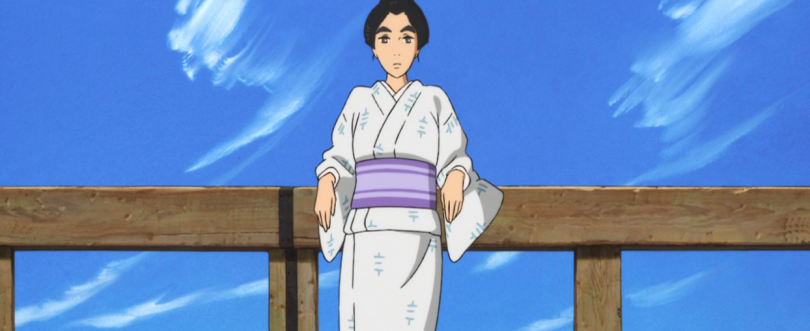aNewDomain — Miss Hokusai is an animated film that follows several days in the well-imagined life of the daughter of the famed Japanese artist Hokusai. You know Hokusai, right? He was the artist behind the 1832 painting The Great Wave Off Kanagawa, pictured at right.
— Miss Hokusai is an animated film that follows several days in the well-imagined life of the daughter of the famed Japanese artist Hokusai. You know Hokusai, right? He was the artist behind the 1832 painting The Great Wave Off Kanagawa, pictured at right.
 Director Keeichi Hara doesn’t focus so much on the great artist. Rather, his spotlight is on Hokusai’s daughter (voiced by Erica Lindbeck/Anne Watanabe)
Director Keeichi Hara doesn’t focus so much on the great artist. Rather, his spotlight is on Hokusai’s daughter (voiced by Erica Lindbeck/Anne Watanabe)
It isn’t the first film to look at Hokusai. Kaneto Shindô’s Hokusai Manga focused on the artist’s artistic process. Miss Hokusai doesn’t go there. And it’s far more emotion-driven. Here we are allowed to observe as the daughter reveals her emotional complexity as well as her innocence about the ways of the world.
Her father (voiced by Richard Epcar/Yutaka Matsushige) understands the degree to which that immaturity hobbles his daughter’s development as an artist.) and her struggles to develop her own artistic talent without shirking her duties as the assistant to her supremely successful artist father.
He helps her, but not too much. He has his own career to manage; his own demons to wrestle with.
The film, like Hokusai’s daughter, is a study in contrasts, in maturity and immaturity adding up to a delicate whole. It’s episodic, for instance, but the themes are mature and sophisticated.
And it is visually compelling, but never in a spectacular or kaleidoscopic way. It takes a calm and steady approach to revealing the art and artists it highlights, but it plays in the deeper, less predictable world of the emotions. The film, it’s worth noting, incorporates a rich color palette throughout, but it’s a subtle one — as subtle as the emotions that flash across this film’s deftly drawn faces and movements.
There are flights of fancy, too, but not too many. The characters’ varying reactions to Hokusai’s paintings elicit the appearance of spirits and ghosts. But they are tasteful.

It’s a friendly but, at times, raw view of 19th-century Japanese city life we get here.
By necessity, this animated film presents a world and worldview far more ordered than reality prefers, but it works. In the end, what you have is a splendid backdrop for this understated experience of emotions, art and what it means to be imbued with both.
Another bonus: There are some lovely views of the city streets of old Edo at night.
I recommend this animated film to anyone who loves animated films, old Japan and deftly-told tales of emotion and art.
Here’s the trailer:
For aNewDomain, I’m Dennis D. McDonald.
Ed:
An earlier version of this movie review ran on Dennis D. McDonald’s DDMCD site. Read it here.













